Records set by one of the fastest cars have always been broken. Many beasts have set and broken previous 0-100 kph (0-60 mph) acceleration records in less than 5 seconds, including cars like Bugatti, Porsche, Lamborghini, etc. Today, we’ll see cars that have shattered this record in the last few decades. We have considered only production cars for the last 50 years. The list is in a manner where the next car broke the record of the previous one. So fasten your seatbelts as we accelerate further!
Porsche 911 330 turbo (1975)
5.2 Seconds
The top-of-the-line model of 911 had a 3.0-liter turbocharged, flat 6-cylinder engine. It used to produce a healthy 260 Hp from that engine. Power was sent to the rear wheels. The car had a rear-mounted engine which helped it gain traction and launch hard.
Porsche 959 (1986)
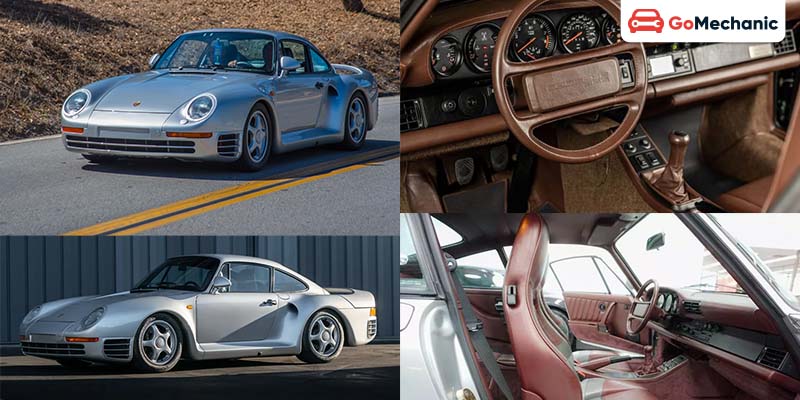
3.6 Seconds
This sub-4 seconds 0-60 miles time was a big deal back then. 959 was the first Porsche with a 4-wheel drive system. This made it a rocket-ship. It was also the car with the highest top speed during that time. To make the car more stable and light, Porsche adopted an aluminum and Aramid (Kevlar) composite for the body panels and chassis. 959 had a 2.8-liter flat 6-cylinder engine. It produced 450hp from the rear-mounted engine.
Bugatti EB110 (1991)
3.4 Seconds
This was the car which started the race in the Bugatti. Bugatti made a mid-engine All-Wheel drive sports car with a 3.5-liter V12 engine with 4 turbos. EB110 produced 560-603 Hp.
McLaren F1 (1992)
3.2 Seconds
The F1 was the first production car from McLaren and it was the fastest production car for more than a decade. It held the record for the fastest acceleration from 0 to 60 mph and also the highest top speed for a production car. The F1 came fitted with a BMW-sourced, 6.1-liter V12 engine. 627 hp of power was a figure that could scare some of the modern sports cars.
Ferrari Enzo (2002)
3.1 Seconds
Ferrari came into the game of fastest accelerating car with the Ferrari Enzo. This car was named after the founder of Ferrari, Enzo Ferrari. It had a 6.0-liter naturally aspirated V12 engine which churned out 660 Hp. The power was sent to the rear wheels through a robotised manual gearbox. Enzo also came with a launch control system which helped it achieve the 3.1 seconds 0-60 record time.
Bugatti Veyron (2005)
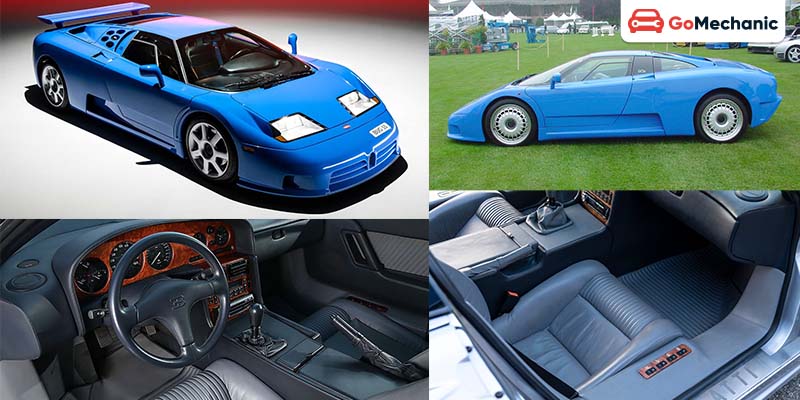
2.5 Seconds
This was a trendsetter in the automobile industry. Veyron was the first production car to have more than 1000 plus HP power output. The 8.0-liter W16 engine produced 1001hp and had Quad turbos fitted. It was a true Hypercar. There were many special editions launched for the car which increased the value of the car. Bugatti also set the record for highest top speed for a production car with a speed of 254 mph.
Porsche 918 Spyder (2015)
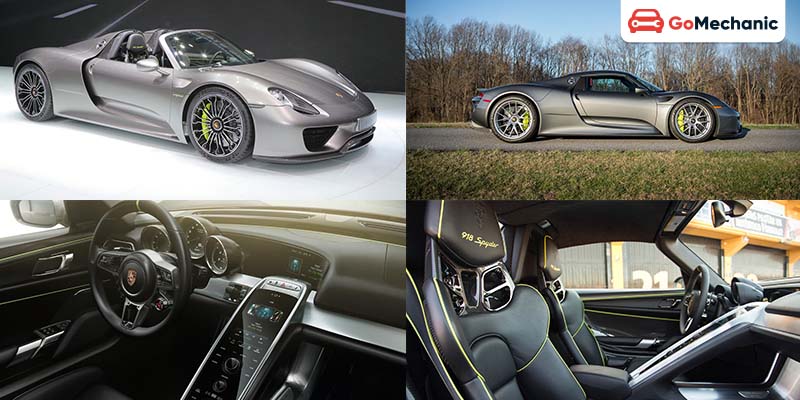
2.1 Seconds
German automaker Porsche made one of the greatest and underrated sports cars. The 918 Spyder. There is a naturally aspirated 4.6-liter V8 engine in the middle of the 918 Spyder that makes 599 hp at 8,700 RPM, and two electric motors that produce an extra 282 hp, giving the car a total output of 875 hp and 1,280 Nm of torque. It also has an all-electric range of 19 km. It completed the Holy Trinity along with the La Ferrari and McLaren P1.
Tesla Model S Plaid (2021)
2.0 Seconds
In 2021, Tesla continued to push the boundaries with the Model S Plaid. This electric sedan features three motors generating a total of 1,020 horsepower, enabling it to go from 0 to 100 kph in just 2.0 seconds. The Model S Plaid underscores Tesla’s leadership in electric vehicle performance.
Koenigsegg Gemera (2022)
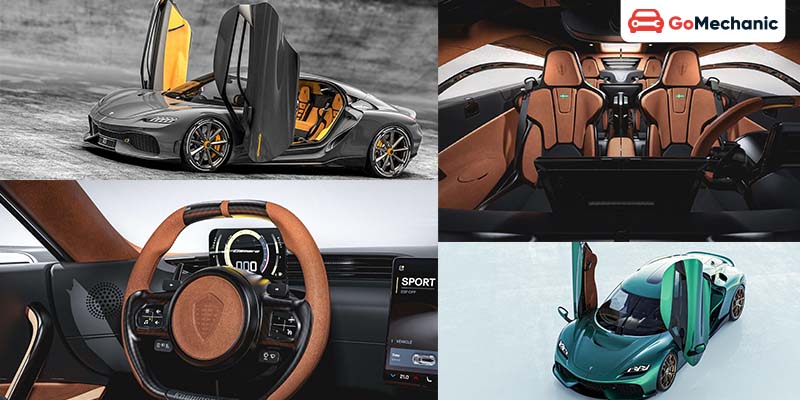
1.9 seconds
Gemera is a plug-in hybrid Sports tourer car. It is the first four-seater car built by Koenigsegg. It initially came with an inline 2.0-liter 3-cylinder engine along with an electric motor. This powertrain was replaced by a 5.0-liter twin turbocharger hybrid V8 engine. The combined output is around 2300 Hp.
Rimac Nevera (2023)
1.85 Seconds
An electric car breaking the fastest acceleration record? Yes. The Rimac Nevera, an electric hypercar from Croatia was the fastest 0-100 kph record breaker as of 2023. It consists of four electric motors that produce almost 1900 horsepower and 2300 Nm torque, helping it to reach 0-100 kph in just 1.85 seconds. This car set this record in November 2023 breaking its own record. It also set the record for the fastest electric car (254 mph). Nevera also holds the record for the highest top speed in reverse.
Aspark Owl (2024)
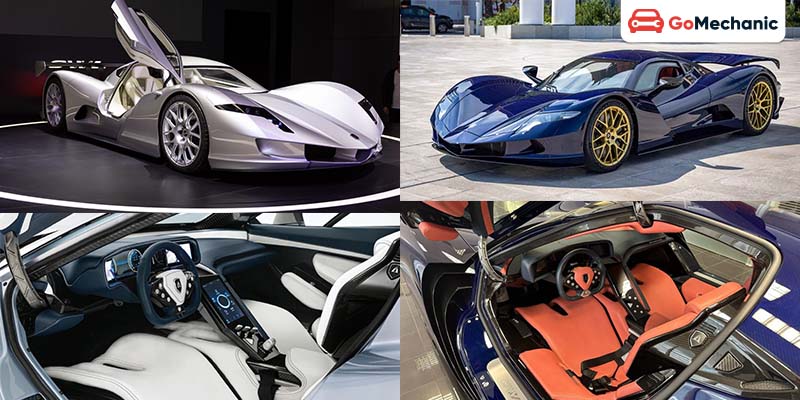
1.74 seconds
Aspark is not very new to the game of high-speed chase. However, it recently surprised with its record runs. It managed to set the quickest 0 to 60 mph time of 1.74 seconds. It is also the fastest electric car with a top speed of over 438 kmph. It would be no surprise if this car breaks many more records.
Conclusion
The last decade has seen remarkable advancements in automotive technology, leading to unprecedented acceleration times. These cars, each a marvel of engineering, have set and broken records, pushing the limits of what is possible. As technology continues to evolve, we can expect even more astonishing feats of speed in the future.





